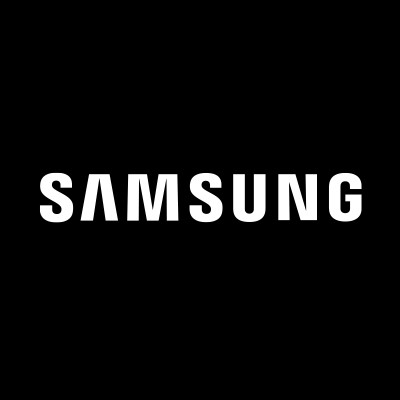Samsung's Resilience Amidst Challenges: A First-Quarter Review
May 3, 2025, 4:04 pm

Location: United States, California, San Francisco
Employees: 10001+
Founded date: 1938
Total raised: $6.4B

Location: United States, California, San Jose
Employees: 10001+
Founded date: 1983
Total raised: $450M
Samsung Electronics has once again proven its mettle in a turbulent market. The company reported a first-quarter profit that exceeded expectations, showcasing its ability to adapt and thrive despite challenges. The tech giant's latest earnings report reveals a complex landscape, marked by a decline in its core memory chip business but buoyed by robust smartphone sales.
In the first quarter of 2025, Samsung posted a net profit of 8.223 trillion won, equivalent to approximately $5.74 billion. This figure represents a 22% increase from the same period last year, surpassing analysts' consensus estimate of 5.635 trillion won. Revenue reached 79.14 trillion won, a 10% rise year-over-year, marking a new quarterly high for the company. These numbers paint a picture of resilience, yet they also highlight the challenges lurking beneath the surface.
The semiconductor sector, a cornerstone of Samsung's business, has faced headwinds. Earnings from this division fell for the third consecutive quarter, driven by fierce competition from SK Hynix. This rival has surged ahead in the market for advanced high-bandwidth memory products, particularly those used in artificial intelligence applications. Samsung's semiconductor revenue dropped 17% from a year earlier, totaling 25.1 trillion won, with operating profit plummeting 42% to 1.1 trillion won. The chip business, once a powerhouse, is now a shadow of its former self.
However, Samsung's smartphone division emerged as a beacon of hope. The mobile device and network business reported an operating profit of 4.3 trillion won, a 23% increase fueled by the successful launch of the AI-powered Galaxy S25. This flagship device, introduced in January, has resonated with consumers, driving sales and reinforcing Samsung's position in the competitive smartphone market.
In addition to smartphones, Samsung's DX division, which encompasses televisions and home appliances, also showed promising growth. Sales surged 28% to 51.7 trillion won, with an operating profit of 4.7 trillion won. This diversification in revenue streams has helped cushion the blow from the struggling semiconductor sector.
Despite these positive developments, Samsung refrained from providing an outlook for the current quarter. The company cited "growing macroeconomic uncertainties" stemming from global trade tensions and a slowing economy. This cautious stance reflects the broader challenges facing the tech industry, where unpredictability has become the norm.
The competitive landscape is shifting rapidly. SK Hynix recently overtook Samsung as the leading manufacturer of dynamic random access memory (DRAM) chips. This shift underscores the need for Samsung to innovate and adapt quickly. While the company anticipates continued strong demand for AI servers, it must also navigate the complexities of the market.
The backdrop of rising U.S. tariffs has prompted consumers to stockpile smartphones and commodity chips. This rush to purchase has provided a temporary boost to Samsung's sales. However, the long-term sustainability of this trend remains uncertain. The company is aware of the need to ramp up production of its enhanced 12-layer HBM3E chips to meet the growing demand for AI-related applications.
Samsung's stock performance has been relatively stable, with shares rising just over 4% year-to-date. Investors are watching closely, weighing the company's strong smartphone sales against the challenges in its semiconductor business. The market's reaction to Samsung's earnings report reflects a cautious optimism, but the path forward is fraught with uncertainty.
In summary, Samsung's first-quarter results illustrate a company in transition. The tech giant has successfully leveraged its smartphone division to offset declines in its semiconductor business. However, the looming specter of global trade tensions and fierce competition from rivals like SK Hynix poses significant challenges. As Samsung navigates this complex landscape, its ability to innovate and adapt will be crucial. The company stands at a crossroads, where the choices made today will shape its future in an ever-evolving market.
In the world of technology, change is the only constant. Samsung must remain agile, ready to pivot as needed. The stakes are high, and the competition is fierce. Yet, with a strong portfolio and a commitment to innovation, Samsung has the potential to emerge stronger from these challenges. The journey ahead will be anything but easy, but if history is any guide, Samsung is more than capable of rising to the occasion.
In the first quarter of 2025, Samsung posted a net profit of 8.223 trillion won, equivalent to approximately $5.74 billion. This figure represents a 22% increase from the same period last year, surpassing analysts' consensus estimate of 5.635 trillion won. Revenue reached 79.14 trillion won, a 10% rise year-over-year, marking a new quarterly high for the company. These numbers paint a picture of resilience, yet they also highlight the challenges lurking beneath the surface.
The semiconductor sector, a cornerstone of Samsung's business, has faced headwinds. Earnings from this division fell for the third consecutive quarter, driven by fierce competition from SK Hynix. This rival has surged ahead in the market for advanced high-bandwidth memory products, particularly those used in artificial intelligence applications. Samsung's semiconductor revenue dropped 17% from a year earlier, totaling 25.1 trillion won, with operating profit plummeting 42% to 1.1 trillion won. The chip business, once a powerhouse, is now a shadow of its former self.
However, Samsung's smartphone division emerged as a beacon of hope. The mobile device and network business reported an operating profit of 4.3 trillion won, a 23% increase fueled by the successful launch of the AI-powered Galaxy S25. This flagship device, introduced in January, has resonated with consumers, driving sales and reinforcing Samsung's position in the competitive smartphone market.
In addition to smartphones, Samsung's DX division, which encompasses televisions and home appliances, also showed promising growth. Sales surged 28% to 51.7 trillion won, with an operating profit of 4.7 trillion won. This diversification in revenue streams has helped cushion the blow from the struggling semiconductor sector.
Despite these positive developments, Samsung refrained from providing an outlook for the current quarter. The company cited "growing macroeconomic uncertainties" stemming from global trade tensions and a slowing economy. This cautious stance reflects the broader challenges facing the tech industry, where unpredictability has become the norm.
The competitive landscape is shifting rapidly. SK Hynix recently overtook Samsung as the leading manufacturer of dynamic random access memory (DRAM) chips. This shift underscores the need for Samsung to innovate and adapt quickly. While the company anticipates continued strong demand for AI servers, it must also navigate the complexities of the market.
The backdrop of rising U.S. tariffs has prompted consumers to stockpile smartphones and commodity chips. This rush to purchase has provided a temporary boost to Samsung's sales. However, the long-term sustainability of this trend remains uncertain. The company is aware of the need to ramp up production of its enhanced 12-layer HBM3E chips to meet the growing demand for AI-related applications.
Samsung's stock performance has been relatively stable, with shares rising just over 4% year-to-date. Investors are watching closely, weighing the company's strong smartphone sales against the challenges in its semiconductor business. The market's reaction to Samsung's earnings report reflects a cautious optimism, but the path forward is fraught with uncertainty.
In summary, Samsung's first-quarter results illustrate a company in transition. The tech giant has successfully leveraged its smartphone division to offset declines in its semiconductor business. However, the looming specter of global trade tensions and fierce competition from rivals like SK Hynix poses significant challenges. As Samsung navigates this complex landscape, its ability to innovate and adapt will be crucial. The company stands at a crossroads, where the choices made today will shape its future in an ever-evolving market.
In the world of technology, change is the only constant. Samsung must remain agile, ready to pivot as needed. The stakes are high, and the competition is fierce. Yet, with a strong portfolio and a commitment to innovation, Samsung has the potential to emerge stronger from these challenges. The journey ahead will be anything but easy, but if history is any guide, Samsung is more than capable of rising to the occasion.